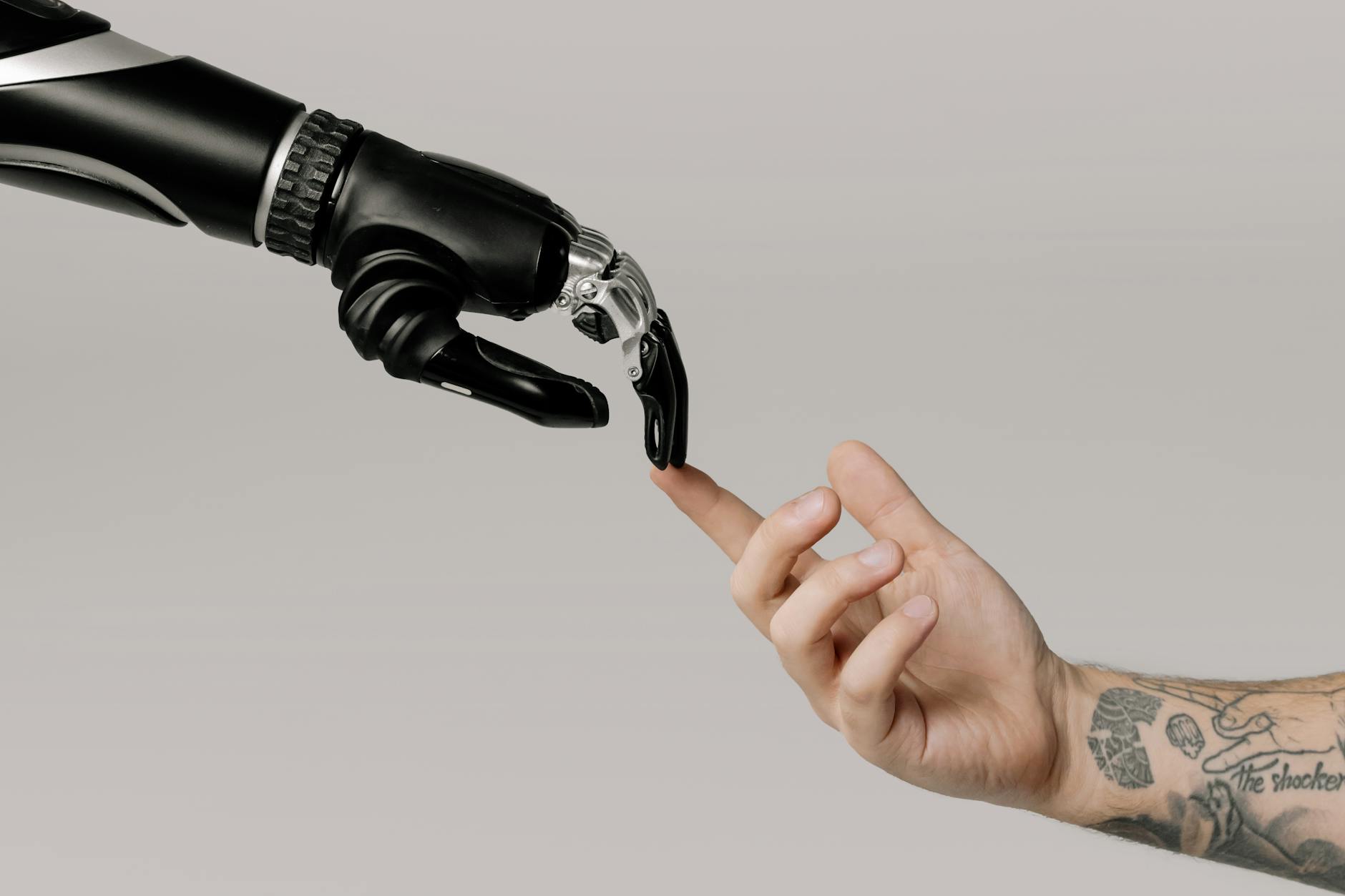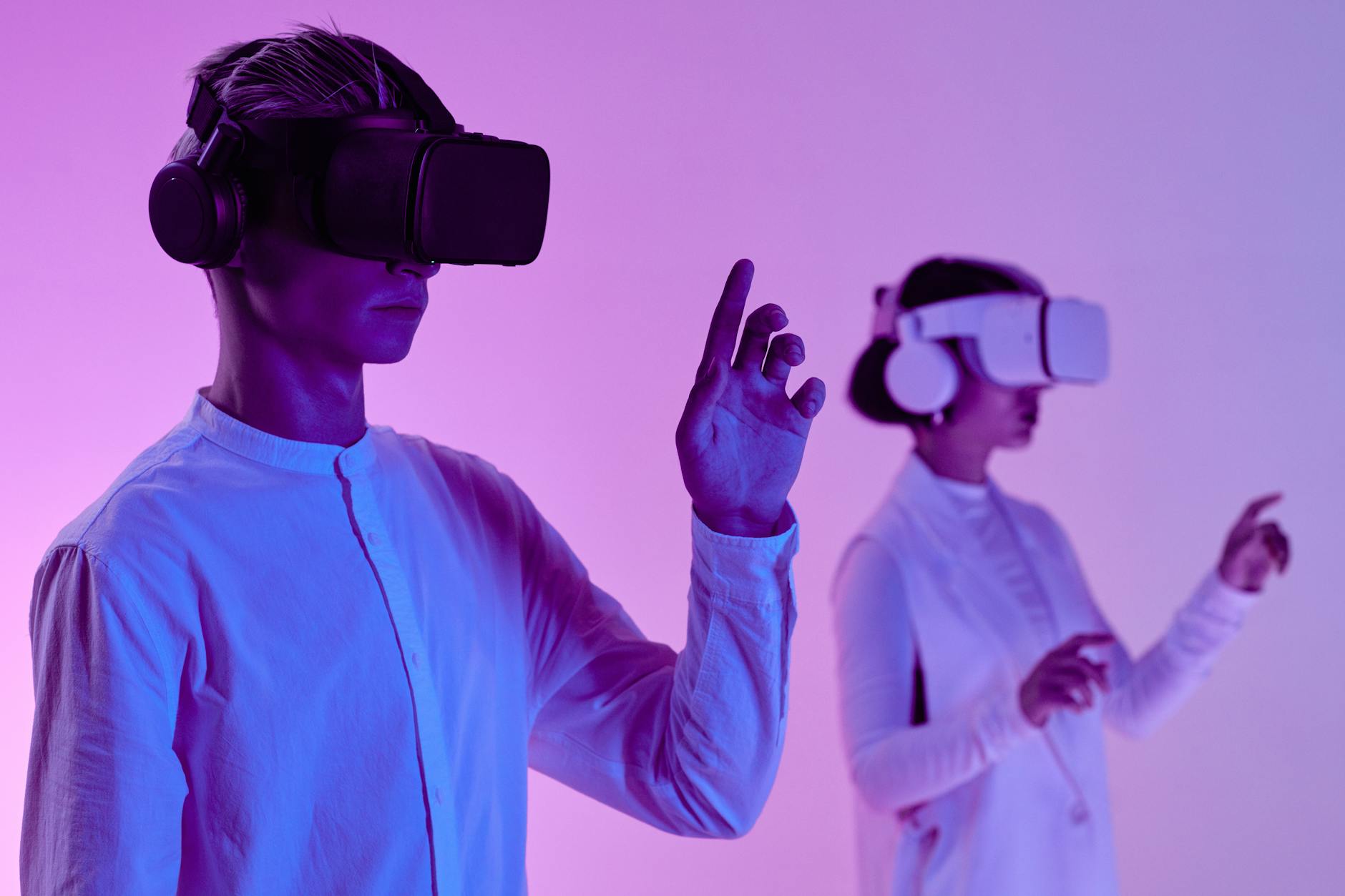We're an affiliate
This post may contain affiliate links which means I may receive a commission for purchases made through links. I will only recommend products that I have personally used!
Artificial Intelligence (AI) has become an integral part of our daily lives, revolutionizing the way we interact with technology and impacting various industries. From personalized recommendations on streaming platforms to advanced medical diagnostics, AI’s applications are vast and continue to evolve rapidly.
This transformative technology, championed by key players such as Google, Amazon, and Microsoft, has not only enhanced efficiency and productivity but also revolutionized decision-making processes across sectors. The influence of AI extends to improving customer experiences, creating new job opportunities, and even shaping societal transformations.
The impact of AI is pervasive, making tasks more seamless and enhancing the quality of services we rely on daily. Whether it’s optimizing supply chains, predicting consumer behavior, or enabling autonomous vehicles, AI’s presence is felt across different facets of modern life, showcasing its pivotal role in shaping the future.
Understanding Artificial Intelligence
Artificial Intelligence, often referred to as AI, is the simulation of human intelligence processes by machines, aiming to mimic human cognitive functions. Understanding the evolution and various types of AI provides insight into its significant advancements and potential impact on society.
AI Evolution
The historical development of AI dates back to the 1950s, driven by the goal of creating machines capable of intelligent behavior. One of the pioneering events in AI history was the Dartmouth Conference in 1956, where the term “Artificial Intelligence” was coined. Over the decades, AI has evolved through different stages, from basic rule-based systems to advanced machine learning algorithms and neural networks.
Key milestones in AI development include the creation of expert systems in the 1970s, advancements in natural language processing and computer vision in the 2000s, and the emergence of deep learning and neural networks in recent years. These breakthroughs have paved the way for AI applications in various industries, such as healthcare, finance, and transportation.
Types of AI
AI can be categorized into different types based on its capabilities and functionalities. Weak AI, also known as Narrow AI, refers to AI systems designed for specific tasks, such as speech recognition or image classification. These AI systems excel at performing predefined tasks but do not possess general intelligence or consciousness.
In contrast, Strong AI, or General AI, aims to develop machines with human-like intelligence capable of understanding, learning, and reasoning across a wide range of tasks. The concept of Superintelligent AI goes a step further, envisioning AI systems that surpass human intelligence and potentially lead to profound societal implications. As researchers continue to explore the boundaries of AI capabilities, ethical considerations surrounding Superintelligent AI remain a topic of debate.
The diverse categories of AI highlight the spectrum of capabilities and implications as AI technology advances. From specialized applications to the realm of general intelligence and superintelligence, AI continues to shape the future of technology and human-machine interactions.
Photo by cottonbro studio 
Applications of AI
Artificial Intelligence (AI) is making a significant impact across various industries, transforming the way we approach different aspects of our lives. Let’s delve into the applications of AI in healthcare, finance, and transportation to understand how this technology is shaping the future.
AI in Healthcare
In healthcare, AI is playing a pivotal role in revolutionizing patient care. From diagnostics to personalized medicine and predictive analytics, AI is enabling healthcare professionals to make more informed decisions faster. For instance, AI-powered algorithms can analyze medical images with incredible accuracy, assisting doctors in identifying health issues at an early stage. Despite the immense benefits AI brings to healthcare, challenges such as data privacy concerns and regulatory compliance need to be addressed to ensure the ethical use of AI technology in the medical field.
AI in Finance
The financial sector is leveraging AI to streamline operations and enhance customer experiences. AI’s applications in finance range from algorithmic trading that predicts market trends to fraud detection mechanisms that safeguard transactions. Moreover, AI-powered customer service chatbots provide real-time assistance, improving customer satisfaction and reducing response times. The impact of AI in finance is reshaping traditional practices and paving the way for more efficient and secure financial services.
AI in Transportation
AI is driving innovation in transportation through advancements like autonomous vehicles and predictive maintenance systems. Autonomous vehicles powered by AI algorithms are revolutionizing the way we travel, promising safer journeys and reduced traffic congestion. Additionally, AI plays a crucial role in optimizing traffic flow and scheduling in urban areas, leading to more efficient transportation systems. As AI continues to evolve in the transportation sector, the future holds promises of smarter, more sustainable mobility solutions.
Photo by Mojahid Mottakin
Key Players in AI
The field of Artificial Intelligence (AI) is propelled by key players like OpenAI, Google AI, IBM, and C3.ai, who are at the forefront of research and development in this dynamic domain.
OpenAI
OpenAI, founded with a mission to ensure that AI benefits all of humanity, focuses on cutting-edge AI research. Their work spans diverse areas, including natural language processing, reinforcement learning, and robotics. Notable projects like GPT-3 showcase the potential of AI in generating human-like text. OpenAI’s commitment to ethical AI development sets a crucial precedent for responsible innovation in the industry.
 Photo by cottonbro studio
Photo by cottonbro studio
Google AI
Google remains a prominent force in AI, leveraging its resources to advance research and develop practical applications. From improving search algorithms to creating self-driving cars, Google AI demonstrates the immense impact AI has on technology and society. By democratizing AI tools through platforms like TensorFlow and contributing to AI ethics discussions, Google plays a pivotal role in shaping the future of AI.
IBM and C3.ai
IBM and C3.ai stand out for their enterprise-focused AI solutions. IBM’s expertise lies in leveraging AI for business optimization and creating AI-driven innovations that enhance operational efficiency. On the other hand, C3.ai specializes in industry-specific AI applications, such as predictive maintenance and supply chain optimization. As these companies pave the way for AI integration in business processes, the future of AI in the corporate world looks promising.
Impact of AI on Society
Artificial Intelligence (AI) is revolutionizing society, shaping our present and future in profound ways. Let’s delve into the impact of AI on society, exploring ethical considerations and the future of work in an AI-driven world.
Ethical Considerations
In the realm of AI, ethical dilemmas abound, demanding our attention. Issues like bias in AI systems pose significant challenges, affecting decisions in areas such as hiring, lending, and law enforcement. Furthermore, data privacy concerns loom large as AI algorithms process vast amounts of personal information. To address these challenges, there is a pressing need for transparent and accountable AI practices. Establishing frameworks for ethical AI development is crucial to ensure fairness, equity, and trust in AI technologies.
 Photo by Michelangelo Buonarroti
Photo by Michelangelo Buonarroti
Future of Work
The landscape of work is evolving rapidly due to AI’s pervasive influence. Automation and AI are reshaping the labor market, altering job roles, and skill requirements. As AI becomes more integrated into various industries, the role of humans in an AI-driven world is a topic of contemplation. Upskilling and reskilling initiatives are crucial for preparing the workforce for the demands of an AI-centric economy. Innovations in training programs and education can empower individuals to adapt to the changing job market, fostering a symbiotic relationship between humans and AI technology.
 Photo by Michelangelo Buonarroti
Photo by Michelangelo Buonarroti
Conclusion
As we navigate the ever-evolving landscape of technology, it is clear that artificial intelligence (AI) stands at the forefront of innovation, shaping the future in profound ways. AI’s ability to learn, adapt, and make decisions is revolutionizing industries and transforming how we live and work. The ethical development and responsible deployment of AI are not just buzzwords but pivotal considerations that will define the impact of AI on society.
In a fast-paced world where AI is becoming increasingly seamless in our daily lives, it is crucial to prioritize ethical AI practices to ensure that AI systems are deployed in a fair and unbiased manner. By leveraging AI responsibly, we can embark on a quest towards a more inclusive and sustainable future where AI serves as a game-changer for the betterment of society.
The potential of AI to unravel complex problems and improve efficiency is undeniable, but it is our responsibility to ensure that AI technologies are developed with a focus on transparency, accountability, and ethical considerations. By embracing the power of AI while upholding ethical standards, we can create a world where AI enhances our lives while fostering trust and resilience in the technology that drives our future.

